Largus Angenent
Largus Angenent

Academic Career
Since 2022 | Professor, Department of Biological and Chemical Engineering, Aarhus University, Denmark. |
Since 2019 | Max Planck Fellow, Max Planck Institute for Developmental Biology, Tübingen, Germany. |
2018-2019 | Group Leader, Max Planck Institute for Developmental Biology, Tübingen, Germany. |
Since 2016 | Professor for Environmental Biotechnology, ZAG, University of Tübingen, Germany. |
2015-2017 | Professor for Biological and Environmental Engineering, Cornell University, USA |
2014-2015 | Visiting Professor, Faculty of Bioscience Engineering, Ghent University, Belgium |
2008-2014 | Associate Professor, Department of Biological and Environmental Engineering, Cornell University, USA |
2008-2009 | Adjunct Professor, Department of Energy, Environmental & Chemical Engineering, Washington University in St. Louis, USA |
2002-2008 | Assistant Professor, Department of Energy, Environmental & Chemical Engineering, Washington University in St. Louis, USA |
2000-2002 | Post-Doc. Environmental Engineering/Molecular Biology, University of Colorado at Boulder, USA |
1999 | Visiting Lecturer, Department of Civil and Environmental Engineering, University of Illinois, Urbana-Champaign, USA |
1998-2000 | Post-Doc. Environmental Engineering, University of Illinois, USA |
1994-1998 | Ph.D. Environmental Engineering, Iowa State University, USA |
1992-1994 | M.S. Environmental Technology, Wageningen University, Netherlands |
1988-1992 | B.S. Environmental Science, Wageningen University, Netherlands |
Scholarships, Awards and Memberships
2023 | Leibniz Prize |
2018 and 2021 | Inclusion in the Web of Science Highly Cited Researcher list |
2017 | Alexander von Humboldt Professor |
2015 | SUNY Chancellor's Awards for Excellence in: Scholarship and Creative Activities |
2008 | Kavli Fellow, U.S. National Academy of Sciences |
2007 | Excellence in Review Award, Environmental Science & Technology, |
2007 | NSF CAREER award, U.S. National Science Foundation |
1999 | GE Scholar, The Academy for Excellence in Engineering Education, Engineering College, University of Illinois at Urbana-Champaign, USA |
Research topics
Open-culture biotechnology; carbon recovery with biotechnology, CO2-to-X, CO2-to-protein, microbial electrochemistry, microbiome analysis
5 relevant publications out of 188 (h-index: 67 on Web of Science with core collection)
- Marcellin E., Angenent L. T., Nielsen L. K. and Molitor B. (2022). Recycling carbon for sustainable protein production using gas fermentation. Current Opinion in Biotechnology, accepted.
- Mishra A., Ntihuga J. N., Molitor B. and Angenent L. T. (2020). Power-to-protein: Carbon fixation with renewable electric power to feed the world. Joule¶, Vol. 4, No. 6, pp. 1142-1147.
- Klask C.-M., Kliem-Kuster N., Molitor B. and Angenent L. T. (2020). Nitrate feed improves growth and ethanol production of Clostridium ljungdahlii with CO2 and H2, but results in stochastic inhibition events. Frontiers in Microbiology, Vol. 11, No. 724, DOI:10.3389/fmicb.2020.00724.
- Molitor B., Mishra A. and Angenent L. T. (2019). Power-to-protein: converting renewable electric power and carbon dioxide into single cell protein with a two-stage bioprocess. Energy and Environmental Science¶, Vol. 12, No. 12, pp. 3515-3521.
- Richter H.*, Molitor B.*, Wei H., Chen W., Aristilde L. and Angenent L. T. (2016). Ethanol production in syngas-fermenting Clostridium ljungdahlii is controlled by thermodynamics rather than by enzyme expression. Energy and Environmental Science¶, Vol. 9, No. 7, pp. 2392-2399.
5 other publications
- Fink C., Beblawy S., Enkerlin A. M., Mühling L., Angenent L. T. and Molitor B. (2021). A shuttle-vector system allows heterologous gene expression in the thermophilic methanogen Methanothermobacter thermautotrophicus ΔH. mBio, e02766-21, DOI:10.1128/mBio.02766-21.
- Sun T., Guzman J. J. L., Seward J. D., Enders A., Yavitt J. B., Lehmann J., and Angenent L. T. (2021). Suppressing peatland methane production by electron snorkeling through pyrogenic carbon in controlled laboratory incubations. Nature Communications. Vol. 12, No. 1, 4119, DOI: 10.1038/s41467-021-24350-y.
- Schröder U., Harnisch F. and Angenent L. T. (2015). Microbial electrochemistry and technology: terminology and classification. Energy and Environmental Science¶, Vol. 8, No. 2, 513-519.
- Agler M. T., Spirito C. M, Usack J. G., Werner J. J. and Angenent L. T. (2012). Chain elongation with reactor microbiomes: upgrading dilute ethanol to medium-chain carboxylates. Energy and Environmental Science¶, Vol. 5, No. 8, pp. 8189-8192.
- Werner J. J., Knights D., Garcia M. L., Scalfone N. B., Smith S., Yarasheski K., Cummings T. A., Beers A. R., Knight R. and Angenent L. T. (2011). Bacterial community structures are unique and resilient in full-scale bioenergy systems. Proceedings of the National Academy of Sciences USA, Vol. 108, No. 10, pp. 4158-4163.
¶ Impact Factor of 39 and 41.
* First or final authorship shared equally.
Anke Becker
Anke Becker
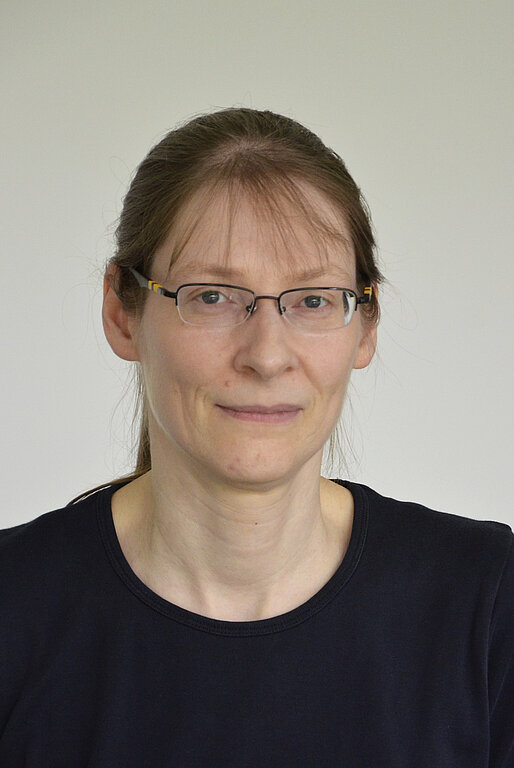
Anke Becker studied Biology at Bielefeld University, Germany. From 1992 to 1994, she did her PhD in microbial genetics in the laboratory of Prof. Alfred Pühler at Bielefeld University supported by a scholarship of the German National Merit Foundation. From 1994 to 2007, she headed a research group with focus on microbial polysaccharide production and omics technologies at the Genetics Department and the Center for Biotechnology (CeBiTec) at Bielefeld University, and in 1999, was visiting scientist at the Massachusetts Institute of Technology, USA. From 2001 to 2006, she received junior group funding in the Bioinformatics Initiative of the German Research Foundation (DFG). Anke Becker was appointed adjunct professor at Bielefeld University in 2007. From 2008 to 2011, she was a professor of microbial genetics and systems biology and member of the Center for Biological Systems Analysis (ZBSA) at the University of Freiburg. Since 2011 she is full professor of microbiology and PI at the Center for Synthetic Microbiology (SYNMIKRO) at the Philipps-Universität Marburg, Germany. Since 2016, Anke Becker is the director of SYNMIKRO, a research center of the Philipps-Universität Marburg in cooperation with the Max Planck Institute for Terrestrial Microbiology.
Anke Becker has authored more than 160 original research articles, received a Lise-Meitner fellowship (Ministry for Sciences and Research, NRW, Germany) in 1998 and a Heisenberg fellowship (DFG) in 2002, was scientific member of the Permanent Senate Commission on Genetic Research of the DFG from 2015 to 2020, and is serving on the DFG review board since 2020 and as editor or associate editor of Journal of Bacteriology, Journal of Biotechnology and BioDesign Research.
Alexander Westermann
Alexander Westermann
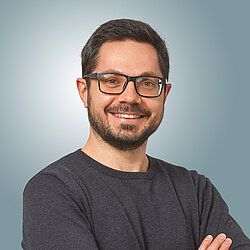
Education
2015: Dr. rer. nat., Molecular Infection Biology, University of Würzburg, Germany
2010: MSc, Molecular Biosciences, University of Heidelberg, Germany
2008: BSc, Biology, University of Heidelberg, Germany
Positions
2023 – preset: Professor (W2), Chair of Microbiology, Biocenter, University of Würzburg, Germany
2023 – present: Group Leader, Helmholtz Institute for RNA-based Infection Research (HIRI), Würzburg, Germany
2018 – 2023: Junior Professor (W1), Institute for Molecular Infection Biology (IMIB), Würzburg, Germany
2018 – 2023: Junior Group Leader, Helmholtz Institute for RNA-based Infection Research, Würzburg, Germany
2018: EMBO Fellow, MRC Centre for Molecular Bacteriology & Infection, Imperial College, London UK
2017 – 2018: Visiting Researcher, Department of Medical Microbiology & Immunology, UC Davis, CA, USA
2015 – 2017: Postdoc, RNA Biology, Institute for Molecular Infection Biology, Würzburg, Germany
2009: Visiting Researcher, Department of Chemistry and Department of Molecular Cell Biology, UC
Berkeley, CA, USA
Committee Work
2022 – present: Member of the Flex Funds Review Board NFDI4 Microbiota (National Research Data Infrastructure)
2020 – present: Reviewer for the Alexander von Humboldt Foundation
Awards & Honors
ERC Starting Grant (2022), Postdoc Award in Microbiology, Robert-Koch-Foundation (2016), Dissertation Prize of the
German Center for Infection Research (DZIF) of the German Society for Hygiene and Microbiology (DGHM) (2016),
PhD Stipend of the Elite Network of Bavaria (2012 - 2015)
Editorial Boards
eLife, Infection & Immunity
Selected Publications
- Ryan D, Bornet E, Prezza G, Varshini Alampalli S, Franco de Carvalho T, Felchle H, Ebbecke T, Hayward R, Deutschbauer AM, Barquist L, Westermann AJ (2024)
An expanded transcriptome atlas for Bacteroides thetaiotaomicron reveals a small RNA that modulates tetracycline sensitivity Nature Microbiology 9(4):1130-1144 - Prezza G, Liao C, Reichardt S, Beisel CL, Westermann AJ (2024)
CRISPR-based screening of small RNA modulators of bile susceptibility in Bacteroides thetaiotaomicron
PNAS 121(6):e2311323121 - Westermann AJ#, Vogel J# (2021)
Cross-species RNA-seq for deciphering host-microbe interactions
Nature Reviews Genetics 22(6):361-378 - Ryan D, Jenniches L, Reichardt S, Barquist L, Westermann AJ (2020)
A high-resolution transcriptome map identifies small RNA regulation of metabolism in the gut microbe Bacteroides thetaiotaomicron
Nature Communications 11(1):3557 - Westermann AJ, Förstner KU, Amman F, Barquist L, Chao Y, Schulte LN, Müller L, Reinhardt R, Stadler PF, Vogel J (2016)
Dual RNA-seq unveils noncoding RNA functions in Salmonella-host interplay
Nature 529(7587):496-501
Judith Berman
Judith Berman
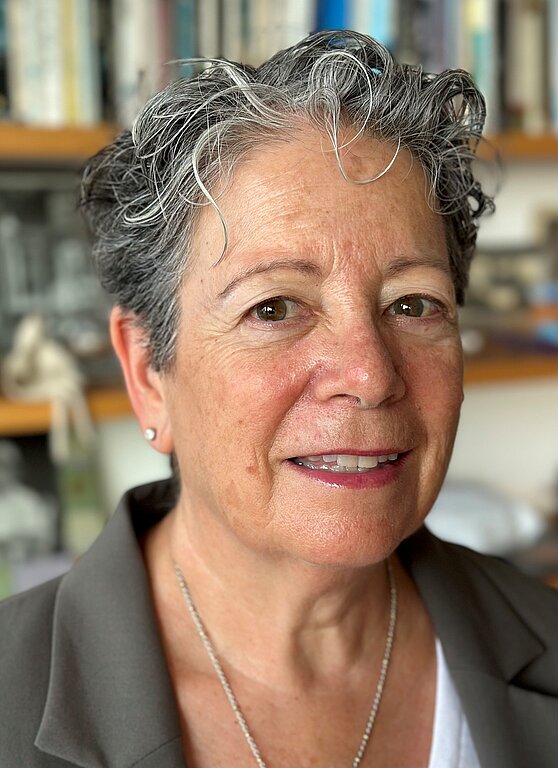
Judith Berman completed a Ph.D at the Weizmann Institute of Science. After post-doctoral work at Cornell University University, she took a faculty position at the University of Minnesota, where she rose through the ranks to Distinguished McKnight University Professor. She moved to Tel Aviv University in 2012, where she is a Professor of Microbiology and Genetics, Nathan Galston Chair of Antimicrobial Drug Research, and Director of the Center for Genome Stability and Fungal Tolerance. She also is and Honorary Professor at the MRC CMM at University of Exeter, a Member of EMBO, a Fellow of the AAAS and a Fellow of the ASM. She has organized multiple conferences, served on many international grant panels, and is an Editor at mBio and G3: Genes, Genomes and Genomics. Her primary research interests are in genome structure and function, including aneuploidy, telomeres, centromeres, origins of replication and repeat regions; and in responses to antifungal drug, especially those that involve phenotypic heterogeneity, in pathogenic fungi with a focus on Candida albicans and other yeasts.
Ulla Bonas
Ulla Bonas
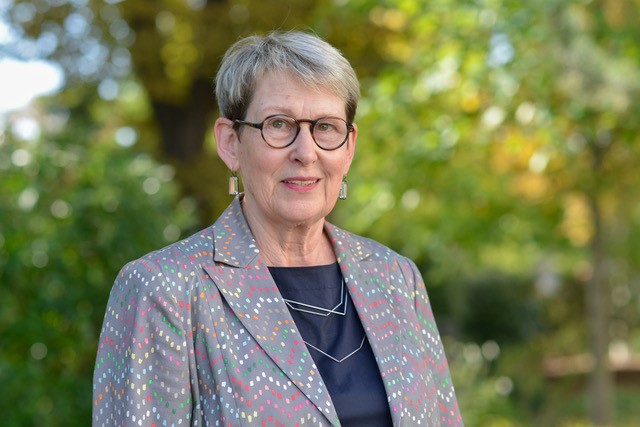
Ulla Bonas studied Biology at the University of Cologne and completed her PhD thesis in Genetics in 1984 with a dissertation entitled “In-vitro cloning of a transposable element in the chalcone synthase gene of Antirrhinum majus”.
From 1985 to 1987, she worked as a postdoc at the University of California, Berkeley, where she started to work on plant-microbe interactions.
From 1988 to 1993, she was the Leader of an Independent Research Group at the Institute for Gene Biology Research in Berlin. In 1992, she habilitated in Genetics at the Free University of Berlin with a thesis on Molecular genetic analysis of the interaction between Xanthomonas campestris pv. vesicatoria and the plant.
From 1993 to 1998, Ulla Bonas was a Groupleader (Directeur de Recherche; permanent) at the CNRS Institute of Plant Sciences in Gif-sur-Yvette, France.
From 1998 until 2021, she was a Full Professor of Genetics at the Martin Luther University Halle-Wittenberg, Halle, Germany. Her research was focused on the genetic and molecular analysis of pathogenicity and plant disease resistance in the Xanthomonas/plant interaction.
Since 2000 Ulla Bonas is a member of the European Molecular Biology Organization (EMBO). Since 2008, she is a member of the German National Academy of Sciences Leopoldina.
She received the Gottfried Wilhelm Leibniz Price of the German Research Foundation (DFG) in 2011.
Since 2015, she is vice-president of the Leopoldina.
From 2018-2023 she was Scientific Director of the Alfried Krupp Institute for Advanced study in Greifswald.
Gordon Brown
Gordon Brown
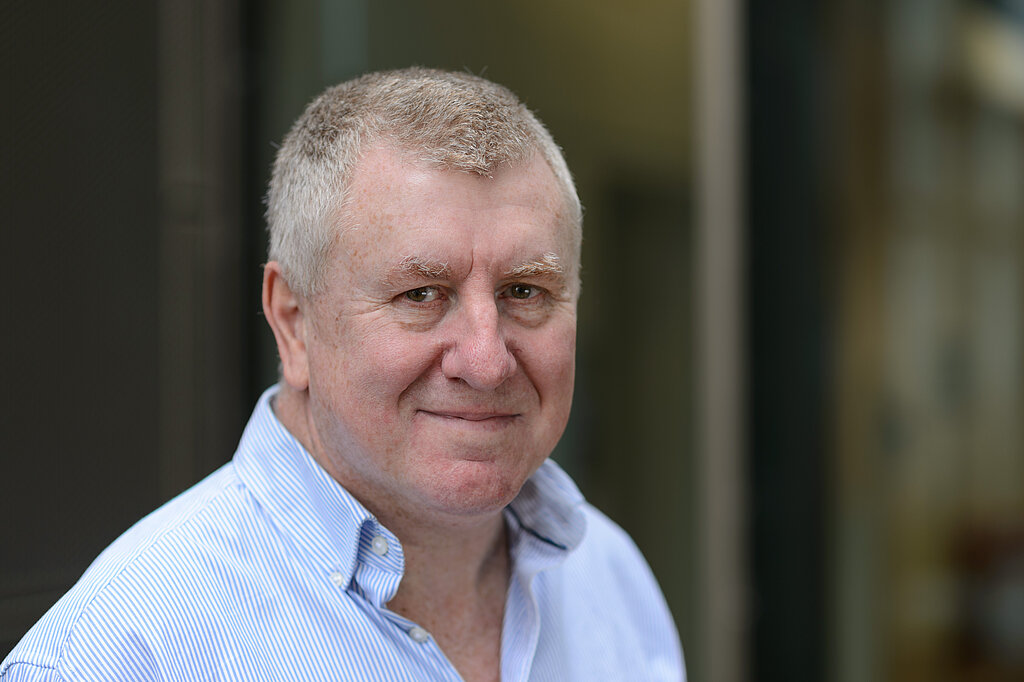
Gordon Brown completed a Ph.D at the University of Cape Town and following Wellcome Trust Fellowships at the University of Oxford and then at the University of Cape Town, he moved in 2009 to the University of Aberdeen as a Professor of Immunology. In 2019 he relocated to the University of Exeter, where he is Director of the MRC Centre for Medical Mycology and Director of the AFRICA Unit, based at the University of Cape Town. His primary research interests are C-type lectin receptors and their role in homeostasis and immunity, with a particular focus on antifungal immunity.
Arturo Casadevall
Arturo Casadevall
Sinead Collins
Sinead Collins
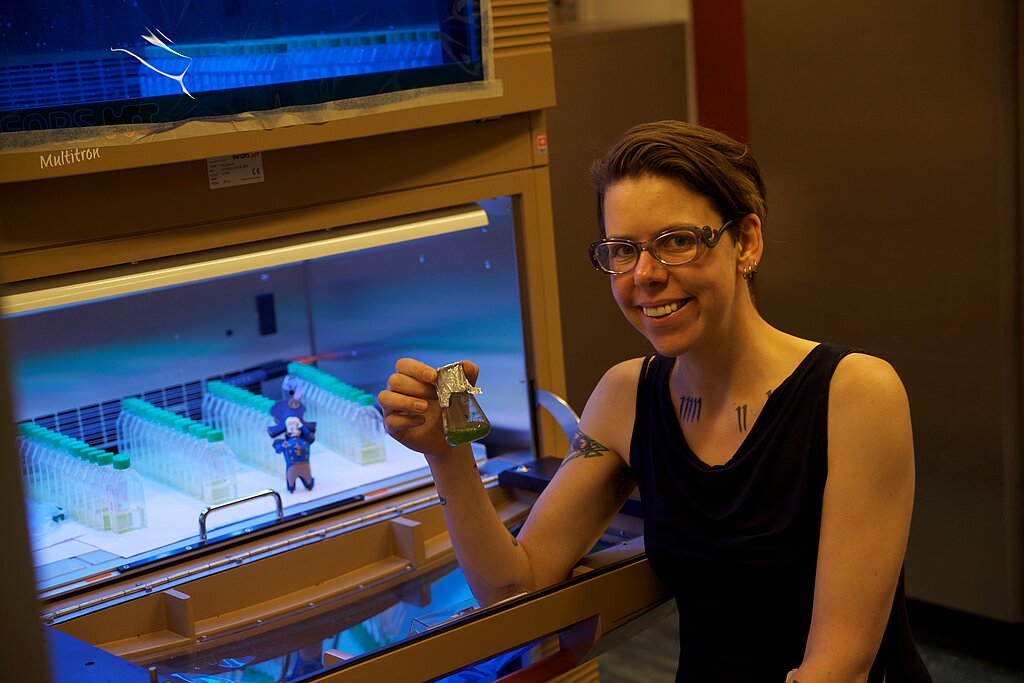
Career
University of Edinburgh (2014-2020). Reader (roughly equivalent to Associate/Assistant Professor). Promotion to full Professor in 2020.
University of Edinburgh (2010 – 2017) Royal Society UK University Research Fellow. “Integrating genetic and environmental complexity into adaptive theory”.
University of Edinburgh (2007 – 2010) NERC Research Fellow “Adaptation in complex scenarios”
Max Planck Institute for Plant Breeding Research, Cologne, Germany (2005-2007) Postdoctoral Researcher. Projects: 1) Selective constraints on cis-regulatory elements in closely related species of Arabidopsis. 2) Rates of environmental change and adaptation. Supervisor: J. de Meaux
McGill University, Montreal, Canada (2000-2006) D.Phil. “Microalgal adaptation to changes in carbon dioxide”. Supervisor: Graham Bell. Dean’s List.
McGill University, Montreal, Canada (1995-1999) B.Sc. Biochemistry, first class honors.
Principal Research Grants
I have included grants where I am a coI when the PI/CoI distinction was for logistical or residence reasons, and where significant resources in the form of funds or personnel come to my group at the UoE, or where I am required to spend substantial time in a collaborator’s lab and am a main supervisor of a postdoc or PhD student. I have not included grants where I am a coI in primarily a consulting role.
British Phycological Society Project Award (2023-2024). PI: Sinead Collins. CoI Sian Henley (UoE, Geosci). “Are diatoms differently adapted to shifts in daylength?”£7720
NERC standard grant (2022-2026). PI: Sinead Collins. CoI: Ben Ward (Southampton). “Empirical determination of the interaction landscape for temperature, CO2 and nitrate for a model diatom” £774 320
Netherlands Organization for Scientific Research Grant. (2019-2021). PI: Dedmer van de Waal. I designed the laboratory selection experiments for this grant, and the PDRA will spend part of her time at the UoE analyzing and writing up the project.
Gordon and Betty Moore Foundation Marine Microbiology Initiative Grant (2018-2022). “Defining the evolvable phenotype landscape for marine phytoplankton”. Naomi Levine (USC), Martina Doblin (UTS), Sinead Collins (UoE). Note that the Moore Foundation requires that the “most quantitative” researcher be the PI on a grant. Naomi Levine is a modeler, and thus the PI on this grant. Total value: $809 133 USD. Minimum UoE value (some of the overall grant has yet to be allocated): $307 014 USD
ARC (Australian Research Council) standard grant (2017-2021). PI: Martina Doblin, UTS, Co-I, Sinead Collins, UoE. “Biological bet hedging and trait evolution in a variable ocean”. AUD 527 188. For this grant, I designed the evolution experiments, travel to Sydney yearly for 2-4 weeks + have frequent skype meetings to mentor the PDRA on the project.
NSFGEO-NERC grant (2016-2020) “Southern Ocean diatoms and climate change: quantifying the relative roles of diversity and plasticity in evolution”. NSF = $790 442, NERC = £228 518.
Royal Society International Exchange Fellowship (2016-2017). Held at University of Southern California. £6000
Royal Society Kavli Workshop grant (2015) “Marine microbial experimental evolution”
ERC Starting Grant (2011- 2016) “Complex adaptation in photosynthetic microbes in response to global change”. Total value €1 492 338.
Petersen Foundation Excellence award held at Helmholtz Centre for Ocean Research Kiel (2011) Total value: €20 000. Nominated international oceanography prize.
Royal Society University Research Fellowship (2010- 2015) Total value: £520 289. Extended to 2018 based on track record. This is a PI (group leader) position, awarded competitively at the national level, based on CV and research proposal, with a success rate less than 10%. At the University of Edinburgh, holding 2 competitively awarded research fellowships sequentially over 8 years or more fulfilled requirements for my transition to an open-ended faculty position.
NERC research fellowship (2010 – 2015) (Declined)
NERC small project grant (2009) Development of an in-vitro evolution system. Total value: £25 000.
NERC research fellowship (2007- 2010). Total value: £354 014. This is a PI (group leader) position, awarded competitively at the national level, based on CV and research proposal.
Quebec Science Discovery of the Year (2005). Pop science prize for PhD thesis research.
National Science and Engineering Research Council of Canada Doctoral Fellowship (2001 – 2003) Competitive based on research proposal. Value: 17,300 CDN
Cesar de la Fuente
Cesar de la Fuente
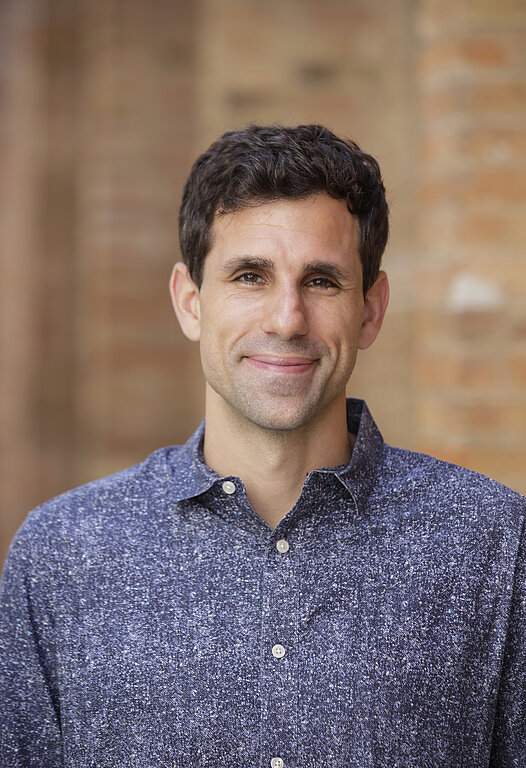
Biography
César de la Fuente is a Presidential Assistant Professor at the University of Pennsylvania, where he leads the Machine Biology Group. Previously, he pursued postdoctoral research at the Massachusetts Institute of Technology (MIT) and earned a PhD at the University of British Columbia (UBC). His research goal is to use the power of machines to accelerate discoveries in biology and medicine. Specifically, he pioneered the development of the first computer-designed antibiotic with efficacy in animal models, demonstrating the application of AI for antibiotic discovery and helping launch this emerging field. His lab has also been in the vanguard of developing computational methods for proteome mining, leading to the breakthrough discovery of a whole new world of antimicrobials. These efforts explored the human proteome as a source of antibiotics for the first time and have dramatically accelerated the time needed to discover preclinical candidates, from years to hours. De la Fuente’s group was also the first to find therapeutic molecules in extinct organisms, launching the field of molecular de-extinction. Additional advances from his lab include designing algorithms for antibiotic discovery, reprogramming venoms into antimicrobials, creating novel resistance-proof antimicrobial materials, and inventing rapid, low-cost diagnostic devices for COVID-19 and other infections. Prof. de la Fuente is an NIH MIRA investigator and has received recognition and research funding from numerous other groups. De la Fuente has received over 65 national and international awards. He is an elected Fellow of the American Institute for Medical and Biological Engineering (AIMBE), becoming one of the youngest ever to be inducted. He was recognized by MIT Technology Review as one of the world’s top innovators for “digitizing evolution to make better antibiotics.” He was selected as the inaugural recipient of the Langer Prize and as an ACS Kavli Emerging Leader in Chemistry, an ASM Distinguished Lecturer, Waksman Foundation Lecturer, and received the AIChE’s 35 Under 35 Award, Society of Hispanic Professional Engineers Young Investigator Award, and the ACS Infectious Diseases Young Investigator Award. He also received the Thermo Fisher Award, as well as the EMBS Academic Early Career Achievement Award “For the pioneering development of novel antibiotics designed using principles from computation, engineering, and biology.” Most recently, Prof. de la Fuente was awarded the prestigious Princess of Girona Prize for Scientific Research, the ASM Award for Early Career Applied and Biotechnological Research, the Rao Makineni Lectureship Award by the American Peptide Society, and was selected as a National Academy of Medicine Emerging Leader in Health and Medicine. De la Fuente serves on the editorial boards of more than 20 scholarly journals and is currently an Associate Editor of Drug Resistance Updates (IF= 24.3; the premier international drug resistance journal), Nature Communications Biology, Bioengineering & Translational Medicine, Bioactive Materials, and Digital Discovery. He has been named a Highly Cited Researcher by Clarivate several times. Prof. de la Fuente has given over 230 invited lectures, including numerous Keynote and Named Lectures, and has spoken at TEDx. He has co-authored a book on machine learning for drug discovery and his scientific discoveries have yielded multiple patents and over 130 publications, including papers in Science, Cell Host Microbe, Nature Biomedical Engineering, Nature Communications, PNAS, ACS Nano, Cell, Nature Chemical Biology, and Advanced Materials.
Adrian Egli
Adrian Egli

After studying medicine at the University of Basel (MD 1998 - 2004, PhD thesis 2006 - 2008) at the University of Basel, I went abroad for a Clinical Fellowship “Transplant Infectious Disease” as well as a Post-doctoral fellowship, Li Ka Shing Institute for Virology (2010 - 2011), both at the University of Alberta, Canada.
Back in Switzerland, I became a fellow in Clinical Microbiolgy (FAMH) (2012 - 2015) at the University Hospital of Basel. During the same time (11/2014 - to date) I became Research Group Leader Applied Microbiology Research” Laboratory in the Department of Biomedicine of the University of Basel. From 2015 to 2022 I was the Head of the Clinical Bacteriology and Mycology at the University Hospital Basel. Since August 2022, I became the Director of the Institute of Medical Microbiology at the University of Zurich.
My main aims for diagnostics and research are:
- to develop new diagnostic for rapid detection of multidrug resistant and virulent pathogens (risk profiling);
- to explore novel typing technologies such as whole genome sequencing (including long read sequencing) and MALDI-TOF mass spectrometry for clinical applications beyond species identification;
- to develop novel diagnostic approaches handling complex information using bioinformatics and machine learning;
- to understand pathogens evolution within the host (e.g. during antibiotic treatment); (v) to finally understand pathogen evolution in the broad context of the host/pathogen/environment interaction.
This could lead to the identification of the most critical factors for pathogenicity and resistance development. Such information will allow the generation of novel intervention strategies to impact disease outcomes for a single patient but also the population burden of infections.
Tobias Erb
Tobias Erb
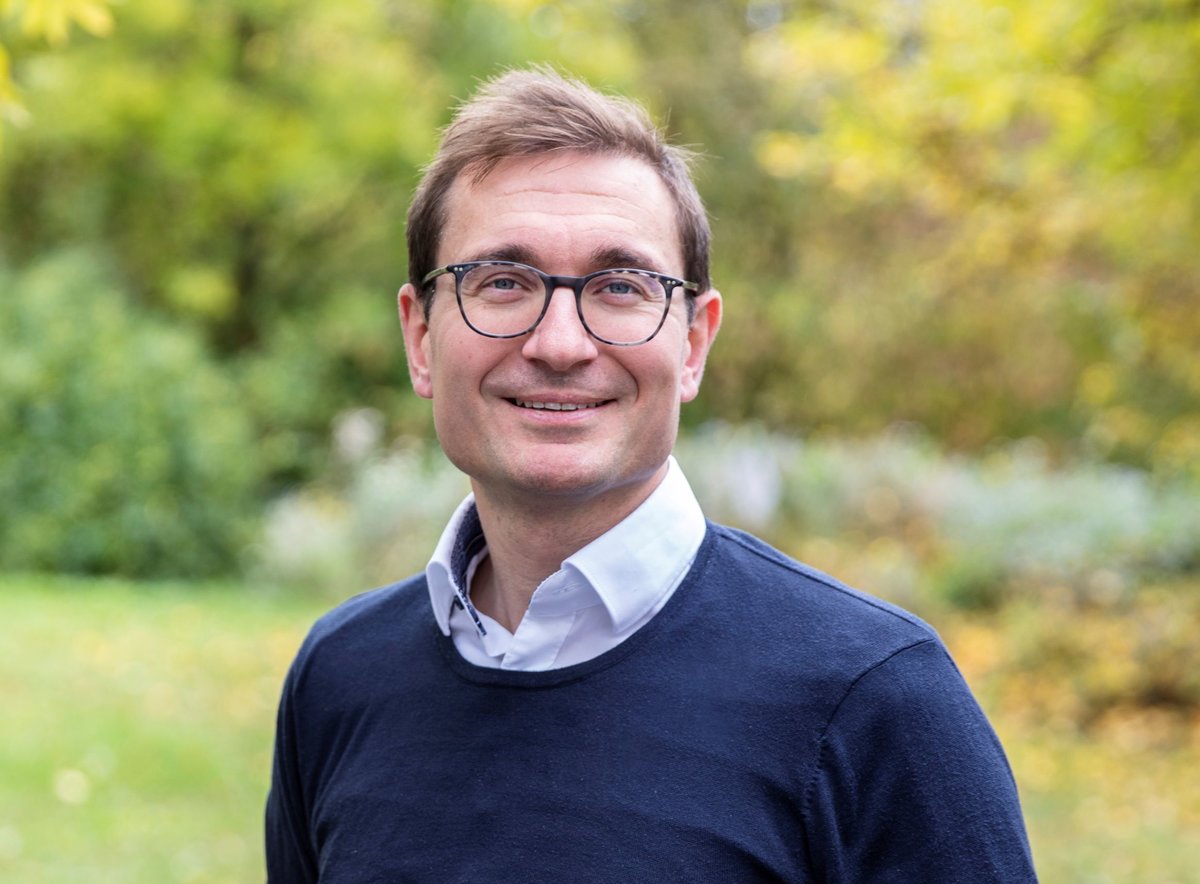
Tobias J. Erb is synthetic biologist and Director at the Max Planck Institute for terrestrial Microbiology in Marburg, Germany. His team interfaces biology and chemistry and centers on the discovery, function and engineering of CO2-converting enzymes and pathways. Research in Erb’s lab crosses multiple scales: from the molecular mechanisms of carboxylases to their ecological relevance, and from understanding the evolution of natural CO2-fixation to developing new-to-nature solutions, such as synthetic CO2-fixation pathways and artificial chloroplasts.
Tobi Erb studied Chemistry and Biology and did his PhD in 2009 at the University of Freiburg (D) and the Ohio State University (US). After a postdoctoral stay at the University of Illinois (US), Erb headed a junior research group at ETH Zürich (CH) from 2011 to 2014, before he relocated to the Max Planck Institute in Marburg, where he was promoted to Director in 2017.
Tobi Erb received numerous awards, among them the Research Awards of the Swiss and the German Societies for Microbiology (SGM and VAAM), the Otto Bayer Award (2018) the Prix Forcheur (2021), and the Future Insight Award 2023. He was named one of 12 up- and coming scientists by American Chemical Society’s C&EN in 2015 and elected to the European Academy of Microbiology in 2019 and EMBO in 2021. He is elected member of the National Academy of Sciences Leopoldina in 2023 and just received the Leibniz-Prize of the German Research Foundation (DFG).
Iliyan Iliev
Iliyan Iliev
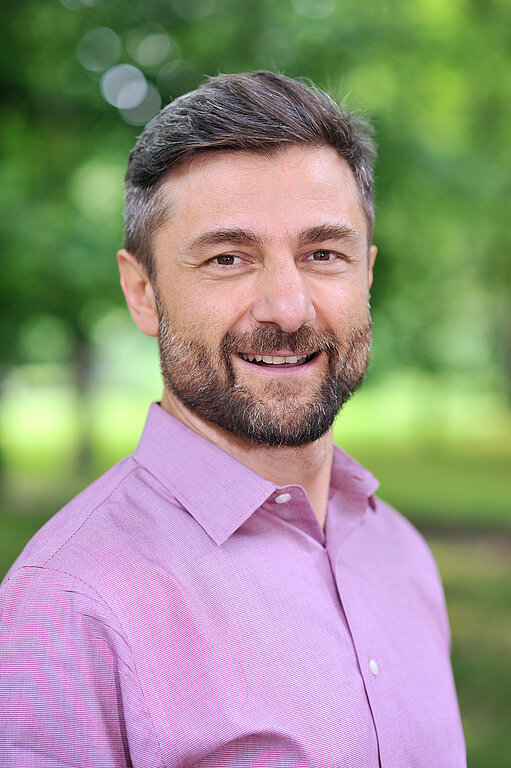
Dr. Iliev is an immunologist known for his work on mycobiota and mucosal immunity. His research highlights the importance of fungal commensalism in the gastrointestinal tract, revealing insights into host immunity modulation by commensals and the fungal link to inflammatory diseases. His work on the mycobiome has revealed the functional importance of strain-dependent mechanisms of interactions with the host, emphasizing the distinct nature of fungal strains. His laboratory has elucidated essential immune response pathways, identified gastrointestinal tumor mucosa-associated fungal species, and uncovered a role of fungi in neuroimmunity. Dr. Iliev is a Burroughs Wellcome Fund PATH Investigator, Irma T. Hirschl Scholar, Kenneth Rainin Foundation Innovator, CIFAR Fungal Kingdom: Threats and Opportunities Fellow and Cancer Research Institute Lloyd J. Old STAR Fellow.
Hailing Jin
Hailing Jin
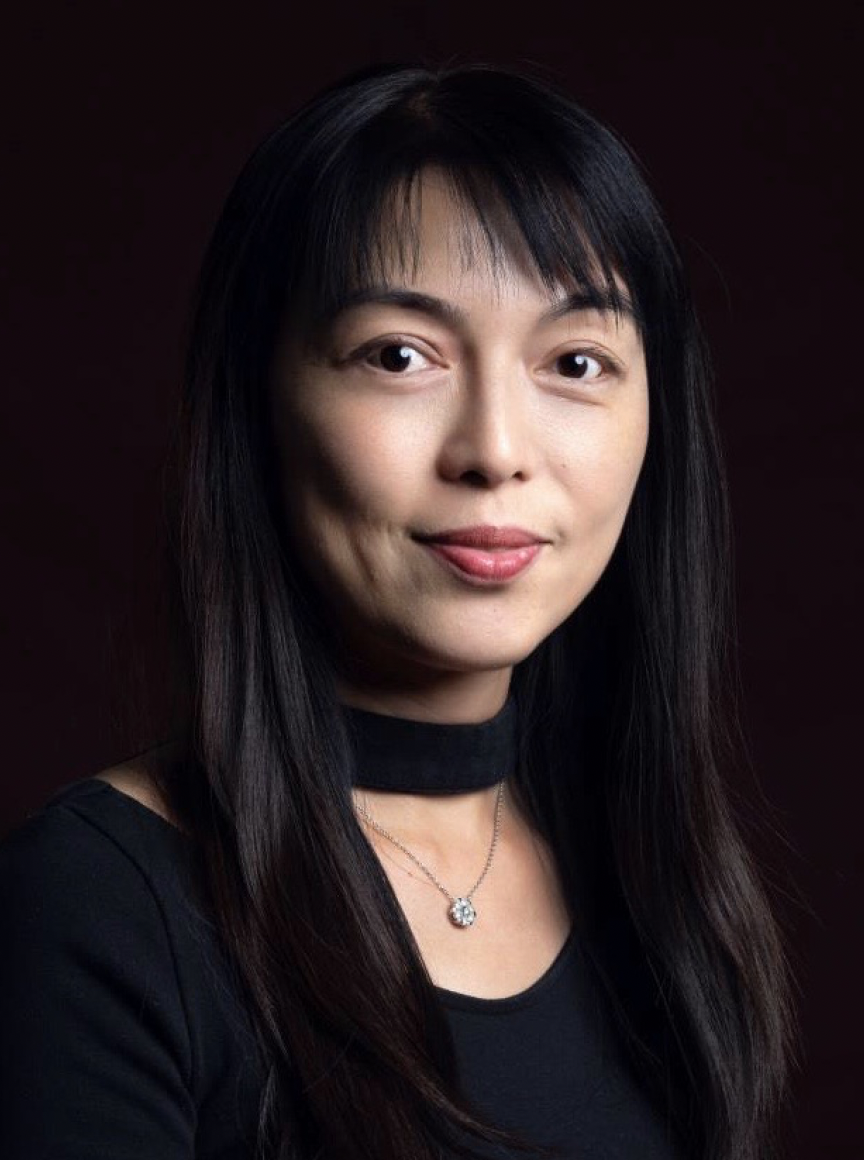
PROFESSIONAL EXPERIENCE
2016-Present Cy Mouradick Endowed Chair Professor
2015-2016 University of California President’s Chair Professor
2014-2017 Director of Genetics, Genomics and Bioinformatics Graduate Program
2013-Present Professor, University of California, Riverside
2009-2013 Associate Professor, University of California, Riverside
2004-2009 Assistant Professor, University of California, Riverside
2000-2004 Research Specialist, Plant Gene Expression Center, University of California,
Berkeley
1996-1999 Postdoctoral Fellow, John Innes Center, UK
EDUCATION
Ph.D. 1996: Molecular Genetics, Shanghai Institute of Plant Physiology and Ecology, Chinese
Academy of Sciences
B.Sc. 1991: Genetics, Wuhan University, China
HONORS and AWARDS
Natasha Raikhel Award for Outstanding Research, UCR 2023
Elected Senior Member of National Academy of Inventors, 2022
International Union of Biochemistry and Molecular Biology (IUBMB) Jubilee Lecture Award, Oct, 2021
The Maximizing Investigators’ Research Award (MIRA-R35) from NIH, 2020
Elected Fellow of American Academy of Microbiology (AAM), 2020
Honorary Professor of University of Queensland, Australia, 2020
Highly Cited Researcher by Web of Science in 2019
CIFAR Fellow (Canadian Institute for Advanced Research), 2019
12th Annual Millikan Memorial Lecturer, University of Missouri, 2018
Ruth Allen Award, American Phytopathological Society, 2017
Elected Fellow of American Association for the Advancement of Science (AAAS), 2015
University of California, Endowed President’s Chair Professor, 2015
NSF Career Award 2007
EMBO Fellowship, European Molecular Biology Organization, 1999
Excellent Performance Award, John Innes Center, Biotechnology and Biological Sciences Research Council, UK, 1997
Beckman Excellent Ph.D. Dissertation Award, Beckman Instruments, Inc., China Office, 1995
EIDTORIAL BOARD
Senior/Section Editor of Molecular Plant-Microbe Interactions (2022-present)
Frontiers in Cellular and Infection Microbiology (2018-present)
Journal of Integrative Plant Biology (2017-present)
Current Protocol for Plant Biology (2020-present)
Journal of Plant Science and Molecular Breeding (2010-2013)
Editor of Plant Physiology (2015-present)
Stress Biology (2021-present)
Non-coding RNA (2014-present)
Journal of Integrative Plant Biology (2012-2017)
Frontiers in Plant-Microbe Interaction (2010-present)
INVITED TALKS
Given total of 246 invited talks since 2005, including 178 talks at the international conferences and institutions, as well as 66 talks at the national level. Among them, 44 talks are Keynote, Plenary remarks and Award lectures.
PUBLICATIONs (Total of 107 publications, H-index 63, i10-index 101)
Key publications (*: Corresponding author)
- Shumei Wang, Baoye He, Huaitong Wu, Qiang Cai, Obed Ramírez-Sánchez, Cei Abreu-Goodger, Paul R. J. Birch, and Hailing Jin*: Plant mRNAs move into a fungal pathogen via extracellular vesicles to reduce infection. Cell Host & Microbe. 2024 Jan 10; 32(1):93-105.e6. doi: 10.1016/j.chom.2023.11.020.
- Baoye He, Huan Wang, Guosheng Liu, Angela Chen, Alejandra Calvo, Qiang Cai, Hailing Jin*: Fungal small RNAs ride in extracellular vesicles to enter plant cells through clathrin-mediated endocytosis. Nature Communications. 2023 Jul 20;14(1):4383. doi: 10.1038/s41467-023-40093-4. PMID: 37474601; PMCID: PMC10359353.
- Lulu Qiao, Jonatan Niño-Sánchez, Rachael Hamby, Luca Capriotti, Angela Chen, Bruno Mezzetti, Hailing Jin*: Artificial nanovesicles for dsRNA delivery in spray-induced gene silencing for crop protection. Plant Biotechnol J. 2023, doi: 10.1111/pbi.14001.
- Chien-Yu Huang, Karla Araujo, Jonatan Niño Sánchez, Gregory Kund, John Trumble, Caroline Roper, Kristine Elvin Godfrey, and Hailing Jin*: A stable antimicrobial peptide with dual functions of treating and preventing citrus Huanglongbing. PNAS, 2021, DOI: 10.1073/pnas.2019628118.
- Baoye He, Qiang Cai, Lulu Qiao, Chien-Yu Huang, Shumei Wang, Weili Miao, Tommy Ha, Yinsheng Wang, Hailing Jin*: RNA-binding proteins contribute to small RNA loading in plant extracellular vesicles. Nature Plants. 2021, doi: 10.1038/s41477-021-00901-5.
- Chien-Yu Huang, Diana Sanchez Rangel, Xiaobo Qin, Christine Bui, Ruidong Li, Zhenyu Jia, Xinping Cui, Hailing Jin*: The chromatin remodeling protein BAF60/SWP73A regulates the plant immune receptor NLRs. Cell Host & Microbe, 2021, S1931-3128(21)00035-4. doi: 10.1016/j.chom.2021.01.005.
- Lulu Qiao, Chi Lan, Luca Capriotti, Audrey Ah-Fong, Jonatan Nino Sanchez, Rachael Hamby, Jens Heller, Hongwei Zhao, N. Louise Glass, Howard S. Judelson, Bruno Mezzetti, Dongdong Niu, Hailing Jin*: Spray-induced gene silencing for disease control is dependent on the efficiency of pathogen RNA uptake. Plant Biotechnology Journal, 2021, doi: 10.1111/pbi.13589.
- Chien Yu Huang, DongDong Niu, Gregory Kund, Mike Jones, Ute Albrecht, Lincoln Nguyen, Christine Bui, Chandrika Ramadugu, Kim D. Bowman, John Trumble, and Hailing Jin*: Identification of citrus immune regulators involved in defense against Huanglongbing using a new functional screening system. Plant Biotechnology Journal, 2020, doi: 10.1111/pbi.13502.
- Chien Yu Huang, Po Hu, Huan Wang, Rachael Hamby and Hailing Jin*: Small RNAs – Big players in plant-microbe Interactions. Cell Host & Microbe, 2019, 26(2):173-182. doi: 10.1016/j.chom.2019.07.021.
- Po Hu, Hongwei Zhao, Pei Zhu, Yongsheng Xiao, Weili Miao, Yinsheng Wang, and Hailing Jin*: Dual regulation of Arabidopsis AGO2 by arginine methylation. Nature Communications, 2019, doi: 10.1038/s41467-019-08787-w.
- Qiang Cai, Lulu Qiao, Ming Wang, Baoye He, Feng-Mao Lin, Jared Palmquist, Hsien-Da Huang, and Hailing Jin*: Plants send small RNAs in extracellular vesicles to fungal pathogen to silence virulence genes. Science, 2018, 360(6393)1126-1129. [Also see Perspective by Bart Thomma in the same issue, 360, 1070-1071].
- Ming Wang, Arne Weiberg, Feng-Mao Lin, Bart P. H. J. Thomma, Hsien-Da Huang and Hailing Jin*: Bidirectional cross-kingdom RNAi and fungal uptake of external RNAs confer plant protection. Nature Plants, 2016, 10.1038/nplants.2016.151.
- Dongdong Niu, Yifan E. Lii, Padmanabhan Chellappan, Lei Lei, Karl Peralta, Chunhao Jiang, Jianhua Guo, Gitta Coaker and Hailing Jin*: miRNA863-3p sequentially targets negative immune regulator ARLPKs and positive regulator SERRATE upon bacterial infection. Nature Communications, 2016, 7:11324. doi: 10.1038/ncomms11324.
- Xiaoming Zhang, DongDong Niu, Alberto Carbonell, Airong Wang, Angel Lee, Vinnary Tun, Zonghua Wang, James C. Carrington, Chia-en A. Chang & Hailing Jin*: ARGONAUTE PIWI domain and microRNA duplex structure regulate small RNA sorting in Arabidopsis. Nature Communications 2014, doi: 10.1038/ncomms6468.
- Arne Weiberg, Ming Wang, Feng-Mao Lin, Hongwei Zhao, Zhihong Zhang, Isgouhi Kaloshian, Hsien-Da Huang, Hailing Jin*: Fungal small RNAs suppress plant immunity by hijacking host RNA interference pathways. Science, 2013, 342 (6154) 118-123.
- Xiaoming Zhang, Yifan Lii, Zhigang Wu, Stefano Lonardi, Jian-kang Zhu, Renyi Liu* and Hailing Jin*: Mechanisms of siRNA generation from cis-NATs in response to stresses. Molecular Plant. 2013, 6(3):704-15. doi: 10.1093/mp/sst051.
- Zhao H., Sun R, Albrecht U, Padmanabhan C, Wang A, Coffey MD, Girke T, Wang Z, Close TJ, Roose M, Yokomi RK, Folimonova S, Vidalakis G, Rouse R, Bowman KD, Hailing Jin*: Small RNA profiling reveals phosphorus deficiency as a contributing factor in symptom expression for citrus Huanglongbing disease. Molecular Plant 2013, 6:301-10.
- Zhang X, Xia J, Lii Y, Barrera-Figueroa B, Zhou X, Gao S, Lu L, Niu D, Liang W, Chen Z, Leung C, Wong T, H. Zhang, Guo J, Li Y, Liu R, Zhu JK, Zhang W*, Hailing Jin*: Genome-wide analysis of plant nat-siRNAs reveals insights into their distribution, biogenesis and function. Genome Biol. 2012, 13 (3): R20.
- Xiaoming Zhang, Hongwei Zhao, Shang Gao, Wei-Chi Wang, Surekha Katiyar-Agarwal, Hsien-Da Huang, Natasha Raikhel and Hailing Jin*: Arabidopsis Argonaute 2 regulates innate immunity via miRNA393*-mediated silencing of a Golgi-localized SNARE gene MEMB12. Molecular Cell 2011, 42, 356-366.
- Zhang W*, Gao S, Zhou X, Xia J, Chellappan P, Zhou X, Zhang X, Hailing Jin*: Multiple distinct small RNAs originated from the same microRNA precursors. Genome Biol. 2010, 11, R81.
- Padmanabhan Chellappan, Jing Xia, Xuefeng Zhou, Shang Gao, Xiaoming Zhang, Gabriela Coutino, Franck Vazquez, Weixiong Zhang and Hailing Jin*: siRNAs from miRNA sites mediate DNA methylation of target genes. Nucleic Acid Research, 2010, 38, 6883-94.
- Surekha Katiyar-Agarwal, Shang Gao, Adam Vivian-Smith and Hailing Jin*: A novel class of bacteria-induced small RNAs in Arabidopsis. Genes & Development 2007, 21, 3123-3134.
- Katiyar-Agarwal S, Morgan R, Dahlbeck D, Borsani O, Villegas A Jr, Zhu JK, Staskawicz B*, Hailing Jin* 2006. A pathogen-inducible endogenous siRNA in plant immunity. Proc. Natl. Acad. Sci. USA 103: 1802-18007.
Rolf Kümmerli
Rolf Kümmerli
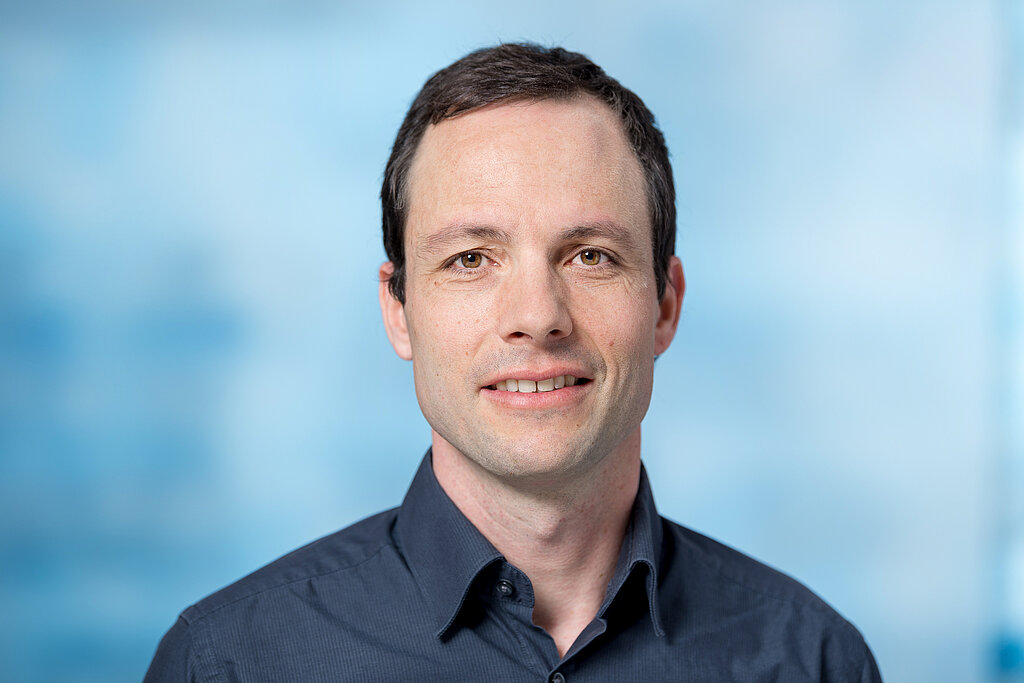
Rolf Kümmerli obtained his PhD from the University of Lausanne, Switzerland in 2006. Subsequently, he worked as a post-doctoral fellow at the University of Edinburgh, UK. In 2009, he became a junior research group leader at the Federal Institute of Aquatic Science and Technology (Eawag) and ETH Zurich. After moving to the University of Zurich in 2012 as an assistant professor, he was promoted to associate professor in 2018, holding the chair for the evolution of human microbiomes and pathogens. His research interests are at the interface between microbiology, ecology, and evolution, with a strong focus on the evolution of microbe-microbe interactions and their consequences for community dynamics and pathogen virulence. His work has been supported by several fellowships and grants including an Ambizione fellowship followed by a professorship grant from the Swiss National Science Foundation, and a Consolidator Grant from the European Research Council.
Christine Moissl-Eichinger
Christine Moissl-Eichinger
Robin Patel
Robin Patel
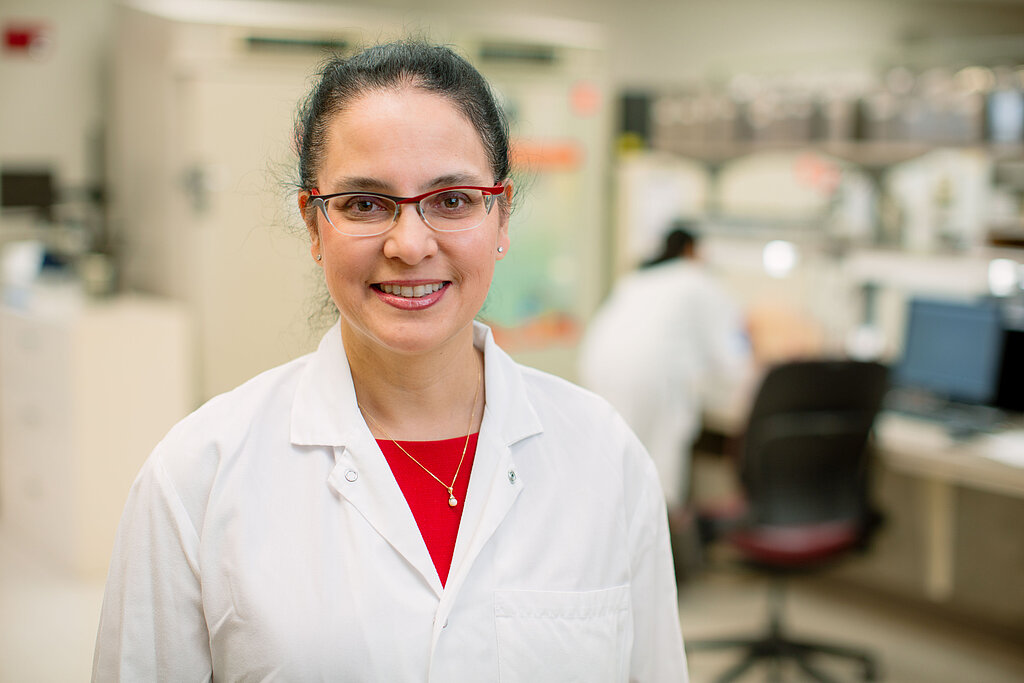
Robin Patel is the Elizabeth P. and Robert E. Allen Professor of Individualized Medicine and the Director of the Infectious Diseases Research Laboratory, Co-Director of the Clinical Bacteriology Laboratory, Vice Chair of Education in the Department of Laboratory Medicine and Pathology, and former Chair of the Division of Clinical Microbiology, at the Mayo Clinic.
Since the beginning of her tenure at the Mayo Clinic, Dr. Patel has focused her research on bacterial infections. Her work focuses on three major areas: (1) improvement of next-generation diagnostic techniques, (2) understanding the inherent biology of periprosthetic infection, and (3) understanding antibiotic resistance through a clinical lens. She has published over 595 peer-reviewed publications and is supported by the National Institutes of Health and the Centers for Disease Control and Prevention. She is the Director of the Laboratory Center of the Antibacterial Resistance Leadership Group of the National Institutes of Health.
Dr. Patel received an undergraduate degree in Chemistry from Princeton University, where she graduated magna cum laude. From there, she obtained a medical degree from McGill University. Afterwards, Dr. Patel completed Internal Medicine Residency and Fellowships in Medical Microbiology and Infectious Diseases at the Mayo Clinic. Since then, she has been involved in setting standards for diagnostic and clinical care of bacterial infections, as evidenced by the (select) positions she has held or holds within the American Society for Microbiology (President, Secretary), American Board of Pathology (Microbiology Test Writing Committee Member), Clinical and Laboratory Standards Institute (Subcommittee on Antimicrobial Susceptibility Testing Voting Member), National Institutes of Allergy and Infectious Diseases (Council Member), National Board of Medical Examiners (Microbiology/Immunology Test Material Development Committee Chair), Journal of Clinical Microbiology (Associate Editor), Clinical Infectious Diseases (Associate Editor) and the Presidential Advisory Council on Combating Antibiotic-Resistant Bacteria (Voting Member).
In addition, Dr. Patel’s continued commitment to mentorship can be translated into a long list of trainees from around the world; she had dedicated hours of teaching to train the next generation of clinical and research laboratory scientists.
More information can be found at: https://journals.asm.org/doi/full/10.1128/JCM.01259-20.
Joe Pogliano
Joe Pogliano

Joe Pogliano is a Professor of Biological Sciences at the University of California San Diego and cofounder of Linnaeus Bioscience Inc. He received two B.S. degrees (in Chemistry and Honors Biology) from the University of Illinois, Champaign. He obtained a Ph.D. from Harvard Medical School where he studied cell division, outer membrane stress responses, antibiotic mechanism of action and protein secretion. He joined the University of California, San Diego faculty in 2003. His lab discovered the phage nucleus and spindle and many new families of actins and tubulins that make up the bacterial cytoskeleton. He and Kit Pogliano developed Bacterial Cytological Profiling (BCP) technology, a technique that provides a rapid method for screening for antibiotics and understanding their mechanisms of action and co-founded Linnaeus Bioscience Inc. to commercialize BCP technology.
Kimberley Seed
Kimberley Seed
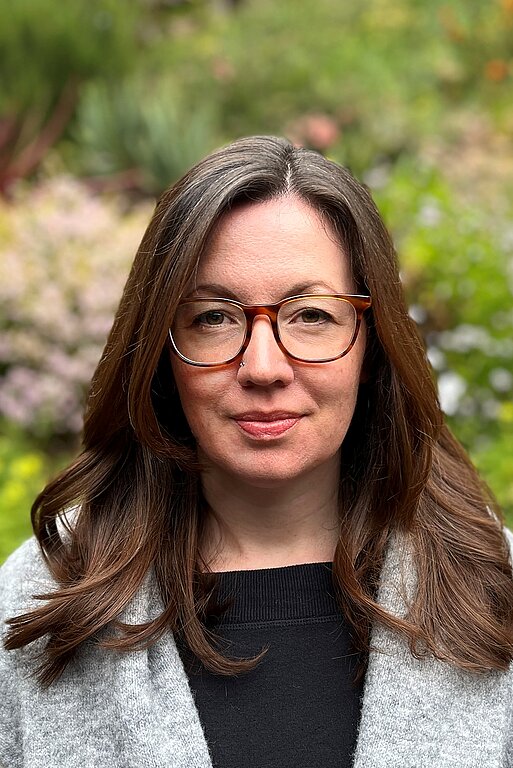
EDUCATION, TRAINING AND PROFESSIONAL POSITIONS
07/2022-Present Associate Professor
Department of Plant and Microbial Biology, University of California, Berkeley, USA
06/2016-06/2022 Assistant Professor
Department of Plant and Microbial Biology, University of California, Berkeley, USA
09/2014-05/2016 Assistant Professor
Department of Molecular, Cellular and Developmental Biology, University of
Michigan, USA
2009-2014 Postdoctoral Fellow
Department of Molecular Biology and Microbiology, Tufts University School of
Medicine, USA, and Howard Hughes Medical Institute
Advisor: Andrew Camilli, Ph.D.
2004-2009 Doctor of Philosophy
Department of Microbiology and Biotechnology, University of Alberta, Canada
Advisor: Jonathan Dennis, Ph.D
2000-2004 Bachelor of Science
Department of Biological Sciences, Honors Microbiology, University of Alberta,
Canada
PREPRINTS AND CURRENT SUBMISSIONS
Underlines indicate corresponding authorship, *indicates authors contributed equally
1. Patel KM and Seed KD. Sporadic phage defense in epidemic Vibrio cholerae mediated by the toxinantitoxin
system DarTG is countered by a phage-encoded antitoxin mimic. December 15, 2023. Biorxiv
571748 [Preprint].
HONORS AND AWARDS
2020 Donald E. Woods Young Investigator Lecture, Banff Conference on Infectious Diseases
2019 - 2024 Burroughs Wellcome Investigator in the Pathogenesis of Infectious Disease Award
2017 - 2022 Chan Zuckerberg Biohub Investigator Award
2017 Nestlé Phage Award, American Society for Microbiology
2016 Elizabeth Caroline Crosby Award, University of Michigan
2013 Postdoctoral Research Fellowship, Charles A. King Trust
2006 & 2009 Excellence in Undergraduate Teaching, University of Alberta
2005 - 2009 Graduate Scholarship, Natural Sciences and Engineering Research Council of Canada
2004 & 2006 Graduate Scholarship, Novartis Pharmaceuticals Canada
Rotem Sorek
Rotem Sorek
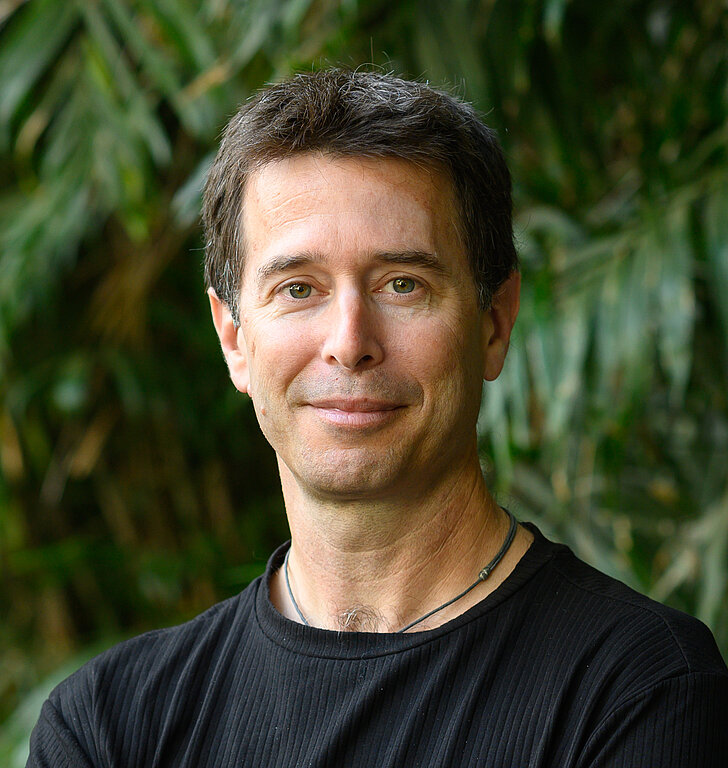
Rotem Sorek
Education
2002-2006 Ph.D., Human Genetics, awarded with distinction, Tel Aviv University Thesis title: “Birth of new exons in the human genome”.
2000-2002 M.Sc. summa cum laude in Molecular Evolution, Tel Aviv University Thesis title: “Evolution and regulation of human alternative splicing”.
1998 - 2000 B.Sc. summa cum laude in Life Sciences, Tel Aviv University.
Employment Positions
2018-present Full Professor, Department of Molecular Genetics
Weizmann Institute of Science, Rehovot, Israel
2014- 2018 Associate Professor, Department of Molecular Genetics
Weizmann Institute of Science, Rehovot, Israel
2008- 2014 Senior Scientist, Department of Molecular Genetics
Weizmann Institute of Science, Rehovot, Israel
2006- 2008 Post Doctoral Fellow, Lawrence Berkeley National Lab, Berkeley, USA
2000- 2005 Compugen Ltd. Group Leader, Genomic Basic Research. Tel Aviv, Israel
Honors
2023 | Max Planck-Humboldt Research Award |
2023 | HFSP Nakasone Award |
2022 | Elected to the German National Academy of Sciences Leopoldina |
2022 | Landau Prize for Excellence in Science |
2022 | Michael Bruno Memorial Award |
2021 | Rappaport Prize for Excellence in Biomedical Research |
2021 | The Andre Deloro Prize for Scientific Research |
2019 | Beutler Research Program Award for Excellence in Genomic Medicine |
2018 | Elected as an EMBO member |
2018 | Elected to the American Academy of Microbiology |
2016 | Scientific Council Prize in Life Sciences |
2016 | ERC-CoG Award recipient |
2015 | Elected for the European Academy of Microbiology |
2014 | FEBS Anniversary Prize |
2013 | Teva Founders Award for outstanding young scientists in Life Sciences |
2012 | Appointed as a member of the Israel Young Academy of Sciences |
2012 | The ISM Rubinowitz-Grossman Prize for outstanding young scientists in Microbiology |
2011 | ERC-StG Award recipient |
2010 | EMBO Young Investigator |
2009 | The Alon Fellowship for outstanding starting investigators |
2008 | Clore Senior Scientists prize |
2006 | The RNA Society/Scaringe Young Scientist Award |
2004 | Clore Foundation Doctoral Prize |
2001 | National excellence award, Israeli House of Representatives |
2001 | The Rector’s list for outstanding students, Tel Aviv University |
2001 | Dean scholarship for MSc studies, Faculty of Life Sciences, Tel Aviv University |
1999 | Roll of Distinction of the Dean of the Department of Life Sciences, Tel Aviv University |
1999 | De-Shalit foundation award, Weizmann Institute of Science |
Memberships in Editorial Boards
2020 – present Member of the Editorial Board of Cell
2009 – 2018 Member of the Editorial Board of BioEssays 2014 – 2017 Associate Editor, Genome Biology and Evolution 2011 Guest Editor, Current Opinion in Microbiology
Patents
Inventor and co-inventor on granted U.S. patents #7368548 (2008), #7528243 (2009), #7553948
(2009), #7569662 (2009), #7667001 (2010), #7842459 (2010), #7906635 (2011), #8513489
(2013) and #9353369 (2016). Inventor and co-inventor on 35 additional international and US patent applications (patent pending).
Review boards and services
- Reviewer for scientific journals including Science, Nature, Cell, Nature Biotech, PNAS, and more.
- Reviewer for funding agencies including EMBO Fellowships, European Science Foundation (ESF), DFG, NWO, ISF and more.
Conference Organization
2023 | Organizer, the 2023 symposium on the immune system of bacteria, Weizmann |
| Institute, Israel |
2022 | Organizer, the Banbury meeting Programmed Cell Death in Microorganisms, |
| CSHL, NY, USA |
2016 | Organizer of the Annual International CRISPR meeting, CRISPR2016, |
| Weizmann Institute of Science, Israel |
2014 | Organizer, RNA-editing Workshop, Ein-Gedi, Israel |
2014 | Organizer, Pasteur-Weizmann workshop on microbial non-coding RNAs, Pasteur |
| Institute, Paris, France. |
Contribution to the Biotech industry
2015 – present Scientific founder and advisor of BiomX Ltd.
Candidate drugs are currently in phases I and II clinical trials.
2019 – present Scientific founder and advisor of Ecophage Ltd.
Teaching
2009 - present Lecturer at the "RNA world" course, Weizmann Institute of Science
2014 - present Lecturer at the "Systems Biology 101" course, Weizmann Institute of Science
Other activities
2009 – 2017 Mentor for gifted high school students, as part of the Israeli Ministry of Education Mentor-Peer Program
Neslihan Tas
Neslihan Tas
Thierry Wirth
Thierry Wirth
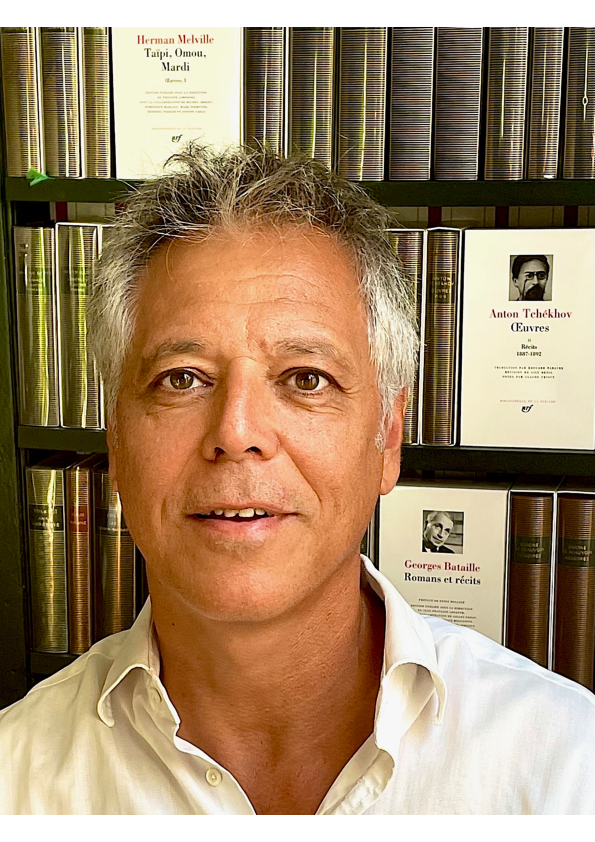
Employment history
Accreditation to direct Research (HDR), University Paris-Sud XI, UFR Scientifique d’Orsay (2006).
2022-2026: Leibniz Chair holder at the Leibniz Science Campus of Evolutionary Medicine of the Lung
Borstel, Germany
2023-2028: EPHE vice-president in charge of international relations
2006–present Full Professor EPHE/Museum of Natural History, Paris
2004-2006 Assistant Professor at Konstanz University (Chair of Zoology and Evolution).
2000-2004 Postdoctoral fellow at the Max-Planck Institute for Infectious Diseases, Berlin, Germany
1998-2000 Postdoctoral fellow at the University Laval, Québec, Canada
1994-1998 PhD at the University Basel, Switzerland.
Field of study
Researcher and Professor in evolutionary genomics, with proven expertise in molecular epidemiology of
bacterial pathogens, focusing on epidemicity estimation and prediction using machine learning technology
and Bayesian statistics. Other research incorporated the rise of antibiotic resistance and secondary
compensatory mutations in MDR strains.
Extensive investigations also included, the coalescent, demography and origin of major human disease
agents (Mycobacterium tuberculosis, Helicobacter pylori, Staphylococcus aureus and Yersinia pestis),
including the effects of globalisation and human migrations in the dissemination of the pathogens.
Domain of expertise: Evolutionary Biology, Microbiology, Population Genomics, Molecular Epidemiology,
ABC Computation, Modeling, Environmental Metagenomics and Signatures of Selection.
Awards & grants
- Swiss National Fonds support – CRSNG/FCAR (Canada). German DFG (100 k€), ATM Muséum “Biodiversity
and role of micro-organisms in past and present ecosystems” - 420 k€, ANR IM-model@coralfish - 135 k€,
EUROPE-ASPIRE (Pfizer company), GENOSCOPE (project Evo-metagenomics) – ANR TB-EMERGE 600
k€, - ANR RESISTRACK 620 k€, ANR SAHYLOR 447 k€, ANR RESTOL-TB 714 k€.
Karina Xavier
Karina Xavier
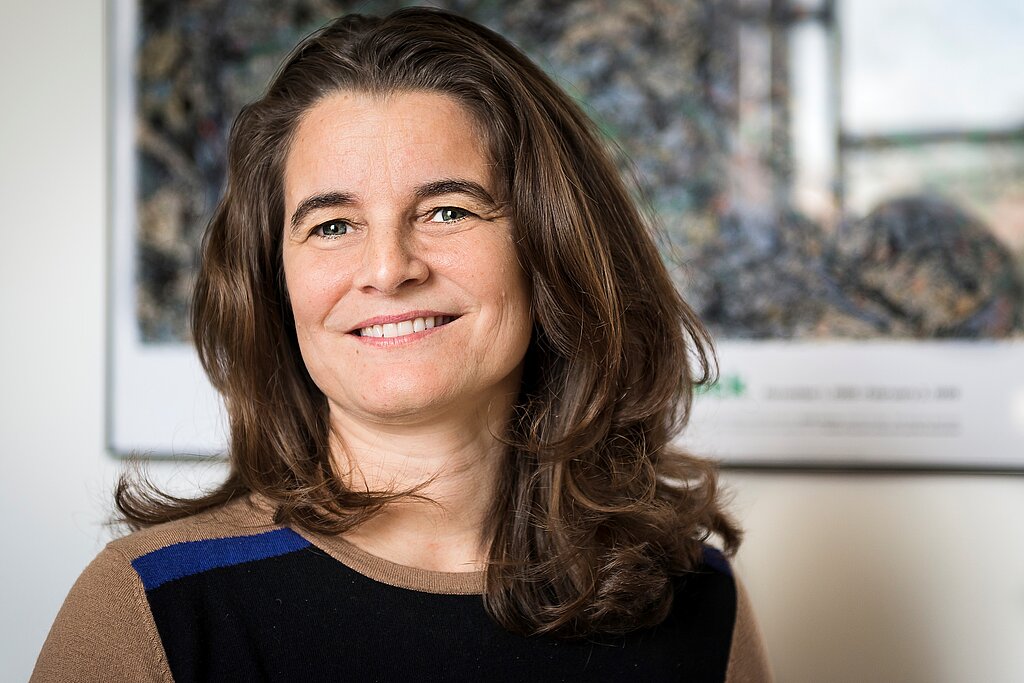
BIOSKETCH. I am Principal Investigator at Instituto Gulbenkian de Ciência in Portugal since 2006. The main focus of my research is inter-species cell-cell communication in bacteria and its role in beneficial and hostile interactions with the host. I received my PhD from ITQB – Nova, Lisbon in 1999 for my work on carbohydrate metabolism in Archaea. I started working on bacterial quorum sensing in my postdoc at Princeton University with Professor Bonnie Bassler. At Princeton, I showed that the quorum sensing signal autoinducer-2 (AI-2) can foster interspecies communication in bacteria45. As an independent PI of several European and National funded grants, I have established an independent research group and went on to discover novel mechanisms involved in quorum sensing signal transduction networks14,19,23 and metabolism31,34. In 2012 I was awarded an HHMI International Early career award. Via the HHMI funded project my group established a setup to manipulate inter-species quorum sensing in the mammalian gut. As a result of this work, we showed that we can influence the species composition of the microbiota by manipulating interspecies quorum sensing directly in the mouse gut and showed that by increasing the levels of the signal AI-2 we can ameliorate the effect of antibiotic-induced dysbiosis27. Currently my group is studying mechanisms involved in recovery of microbiota imbalances and has identified a keystone microbiota member which is sufficient for restoring colonization resistance against Enterobacteriaceae post-antibiotic treatment10. Our most recent work highlights the importance of the gut metabolic environment shaped by microbiota and diet in driving ecology and evolution of this ecosystem11,5 (see list of publication below for references).
AWARDS and HONORS
Fellow of American Academy of Microbiology (AAM) – Elected in 2022
Member of European Molecular Biology Organization (EMBO) – Elected in 2021
Member of European Academy of Microbiology (EAM) – Elected in 2019
Elife Board of Reviewing Editors – 2019
FCT Investigator Programme – Coordinator Award, 2017.
PLOS Genetics Research Prize 2015 (as co-author).
NIH Travel Grant. October, 2014.
Howard Hughes Medical Institute International Early Career Award. February 2012.
